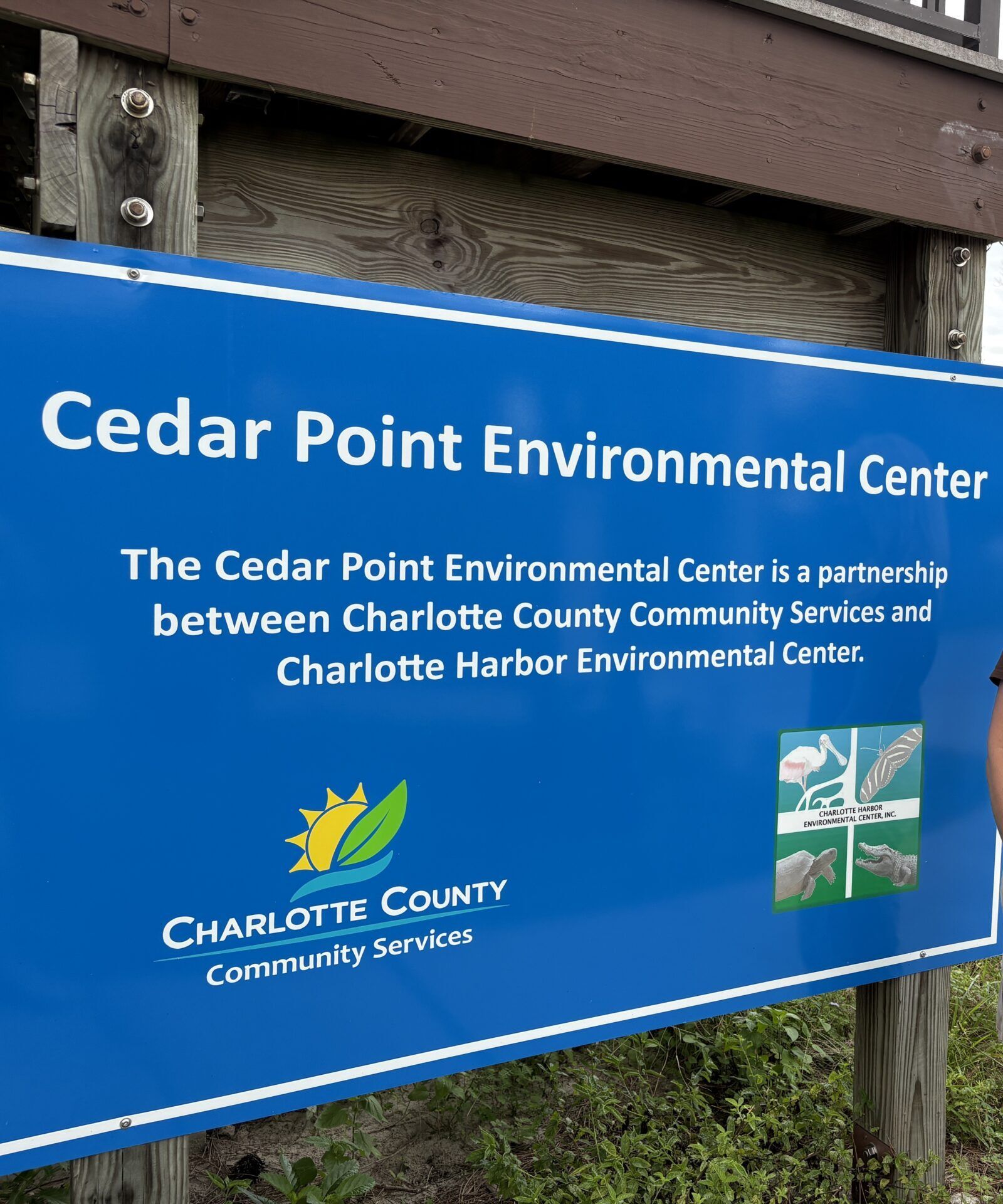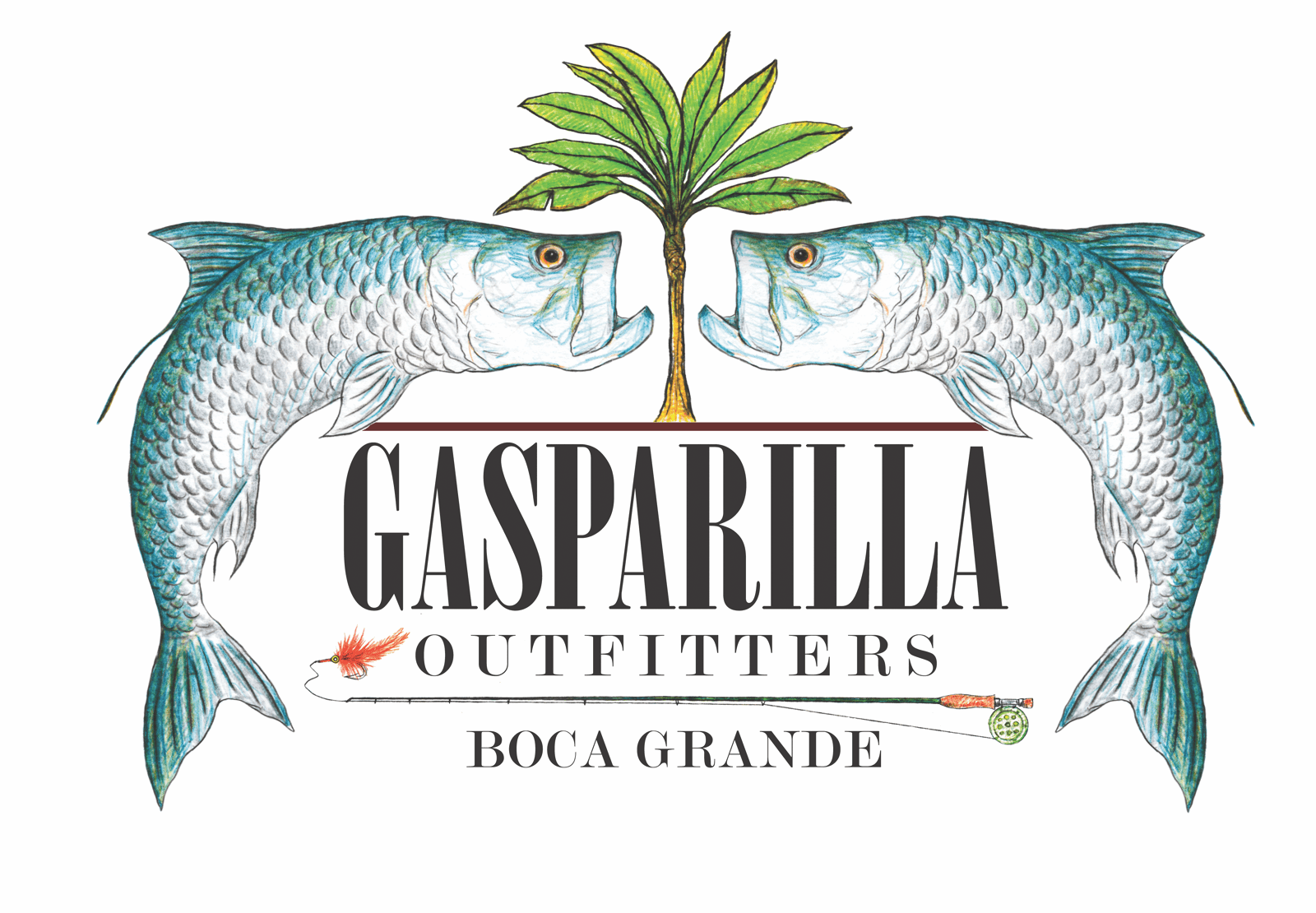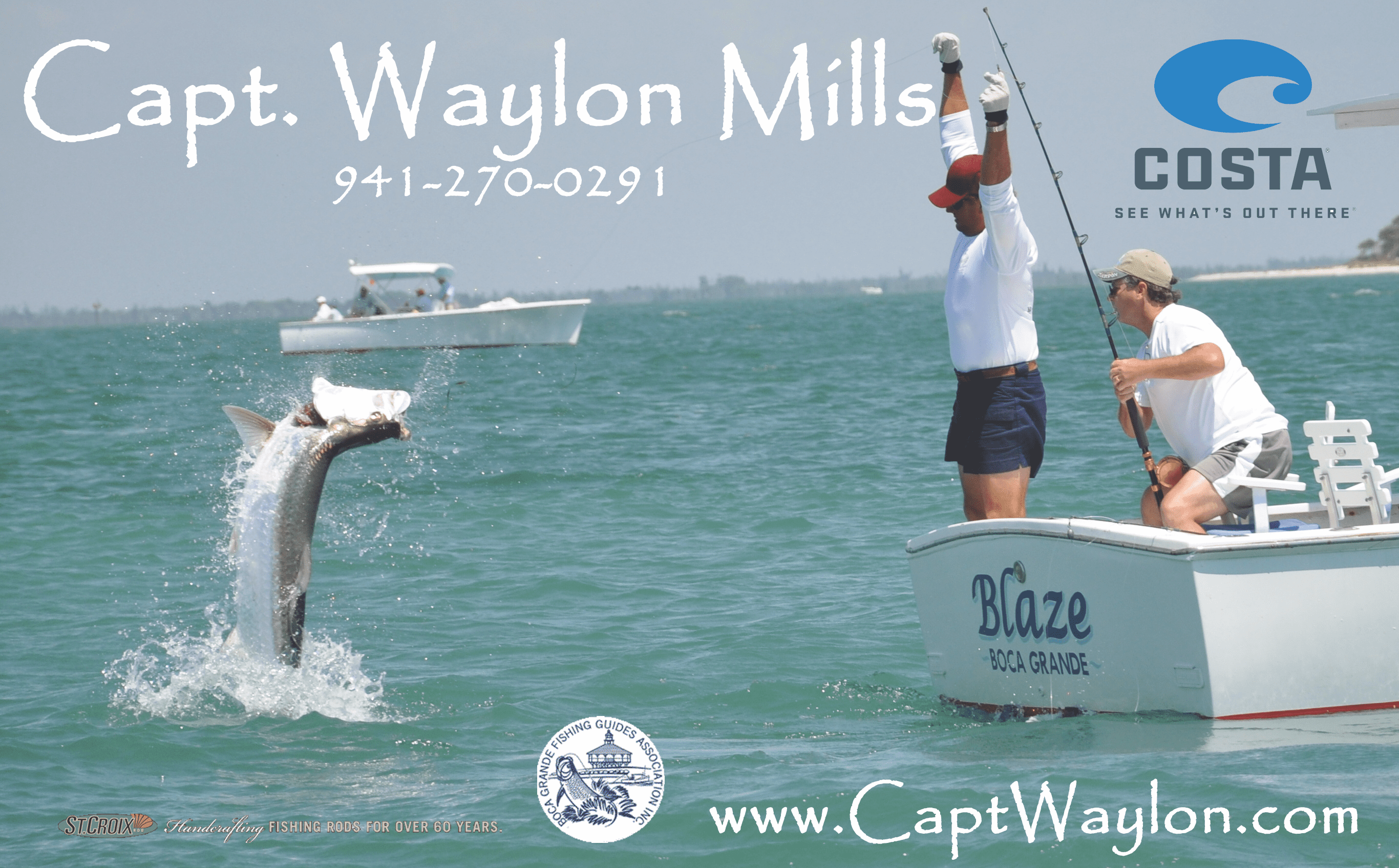IN THE SPOTLIGHT: Michelle Starr

Master naturalist, water advocate
Many Beacon readers will recognize Michelle Starr. Over the years, she has guided countless eco-tours through Boca Grande’s waters, teaching visitors about the marine life that thrives here and the fragile ecosystems that sustain it. She has also contributed to the Beacon as a guest writer, sharing insights on local nature and ecology. Now, Starr is back in a new role as the Director of Education at Cedar Point Environmental Center in Englewood, where she hopes to continue fostering a deeper understanding of Florida’s environment and the choices that shape it.
“I grew up an only child on an old farm on six acres in Michigan in the Midwest. So, I always loved nature,” Starr said. That love of the outdoors carried her across the country, and eventually, to the Gulf Coast, where she became a passionate advocate for Florida’s fragile ecosystems.
Starr’s professional path has been shaped by a deep understanding of the connection between human health and the health of the environment. After a move to San Diego, she faced health issues that forced her to reexamine her lifestyle. “I learned that stress and not being outside enough, and my eating habits and all of that had a big deal [to do] with autoimmune issues,” she recalled. That realization led her to pursue a degree in complementary and alternative medicine, which she describes as “a fantastic degree to really dive into how we grow our food, and how we take care of our land directly impacts our health.”
By the time she moved to Florida in 2012, Starr’s interest in environmental health had grown into advocacy. “I started noticing the development even like 2015, 2016 in Florida, and then 2018 we had a really, really bad red tide,” she said. The ecological crisis coincided with her Florida Master Naturalist classes and her first forays into environmental education.
That same year, Starr began working as a kayak tour guide with Riding the Waves and later joined Glass Bottom Rentals. “I started giving tours every single day around the island, through Gasparilla Sound,” she said. “I got close to everybody on the island. I know the waters inside out around Boca, got very familiar with the sea life, and really started teaching people more about how what we do in freshwater systems and how we do our land and how we grow our food is what is creating our problems with our water.”
For Starr, those tours were never just about biology. “While I did teach everybody about the marine life, I was really hitting home, if you really care about these sea stars and these conchs, then we need to be mindful of how we’re developing and how we’re growing our food,” she said. “It’s all interconnected.”
After Hurricanes Milton and Helene destroyed Glass Bottom Rentals’ launch in 2024, Starr faced a major loss. Yet, that turning point led her to Cedar Point Environmental Center, and back to the community where she began building her reputation as an educator and advocate. She is especially excited to engage full-time residents who may feel overlooked compared to seasonal visitors. “My niche is kind of more working with the people who are already here. I have a great relationship with people in Englewood, people from Placida,” she said. “I’m excited to get more of them here and involved.”
Her approach is rooted in inclusivity. “I stay away from polarizing subjects,” she said. Instead, she focuses on how things like land management, from building more golf courses and housing developments to practicing monoculture, impact individuals living in Southwest Florida.
That philosophy extends to her educational programs for children. She believes kids can become change agents in their own families. “If you kind of get the kids interested,” she said, “then maybe the parents are like, ‘Wait, what?’ And they get interested.”
As a transplant herself, Starr understands the challenges of adapting to Florida’s unique ecosystems. Many newcomers, she said, bring expectations from the Midwest or other regions that don’t fit the state’s delicate balance. “Our ecosystems are so different, so it’s hard for people to understand,” she explained. “In Michigan, Illinois, Indiana, we can kind of develop a little bit more, and it doesn’t have such a hard impact on the property. But Florida really is one big, giant swamp. It’s super important. So they don’t understand that when they come down here and they want more malls and more golf courses, that it’s going to cause more flooding, it’s going to cause more pollution.”
Starr sees her role as a bridge between available information and community action. “The information is there. It’s just getting it out and making it palatable,” she said. Too often, she added, people “shut off and don’t listen” when conversations become political.
Her solution? Keep it simple and actionable. “The big thing, as silly as it sounds, is biodiversity,” she said. “If you already own a home, try to put more native plants. If you have retention ponds in your HOA, work with your HOA to try to get them to leave the spot around their pond that’s three or five feet of native plants. Spray less. The plants are going to do the work.”
She also urges residents to support local farmers and ranchers. “If we don’t support them, and we keep going to the big stores, more big stores are going to come in,” she said. “So if we’re going to save our environment and save Old Florida, you’ve got to kind of do it at home first, and then really support your small local community.”
At Cedar Point, Starr is focused on reshaping programs to better connect children and families with the outdoors. School field trips will remain a staple, with second and fourth graders visiting from across the county. And with new staff hires, she hopes to expand offerings for older children and teens as well. Volunteers, she emphasized, are critical to making these programs happen.
Despite the challenges facing Florida’s waterways, Starr remains optimistic. Her hope comes from personal experience on the water, watching attitudes change in real time. “What gave me hope was actually my time on the water – being able to engage with people that otherwise wouldn’t care or wouldn’t click,” she said. “Seeing one little piece of information totally changed them. And when they come back a year later, they’re like, ‘Oh, I learned this from you,’ which sets the stage for more learning.”
Her outlook is rooted in the belief that small changes can ripple outward. “If you impact one person, and you kind of get a light in their eye, that goes like a ripple effect,” she said.
For Starr, the work is about more than education and advocacy. It’s about fostering a sense of stewardship and belonging. “Everything that we’re doing is not only hurting our environment, but it’s increasing disease. It’s increasing diabetes. It’s increasing childhood obesity. So everything that we’re doing, it’s all interconnected,” she said. “We need to remember where our food comes from. We need to remember the small-town feel. And we need to remember to be good stewards for not only our bodies, but the environment. They go hand in hand.”
As she settles into her new role, Starr is determined to keep that message front and center: care for the land, support the community and preserve the ecosystems that make Southwest Florida extraordinary.
- New Farlow’s restaurant Chophouse285 anchors Englewood’s Dearborn Street
- Schmaltz & Pepper for All That Jazz
- Charlotte meets on beach access; Placida park project moves forward
- World of mangroves the subject of conservation lecture series talk at Englewood Chamber of Commerce
- Magano at Camera Club talks on light-painting and photography









